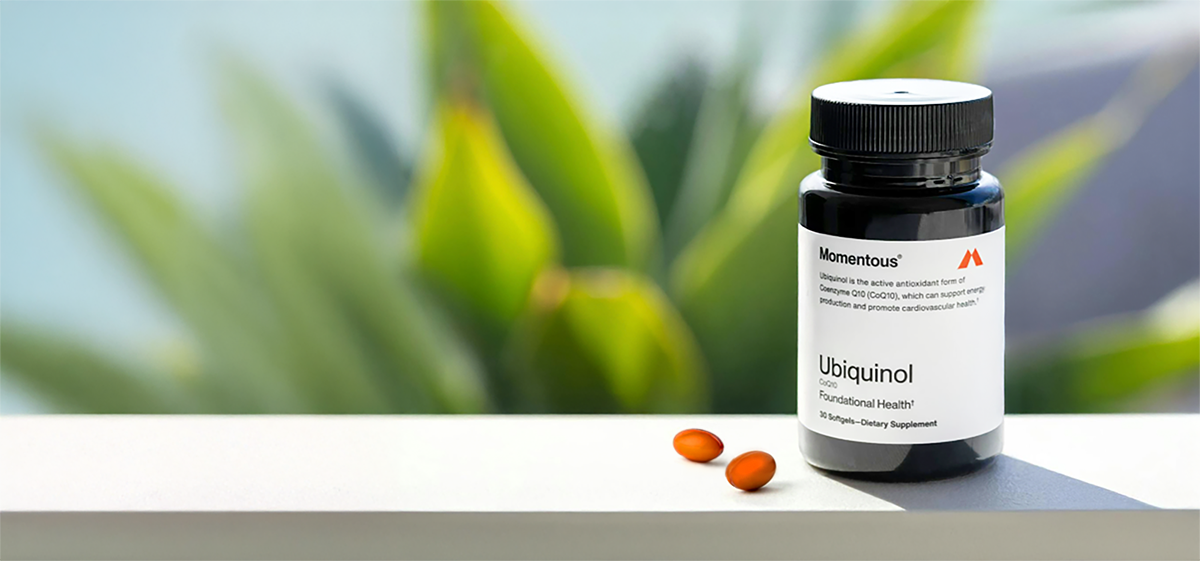
Ubiquinol vs CoQ10: Key Differences & Benefits
|
|
Ubiquinol is the active form of CoQ10 and may offer better absorption for certain individuals, while traditional CoQ10 (ubiquinone) is more stable and often more affordable. Choosing the right form isn’t always straightforward. Coenzyme Q10 (CoQ10) is essential for cellular energy production and antioxidant protection. It exists in two primary forms:
Ubiquinol: The active, electron-rich, reduced form that the body can readily utilize.
Ubiquinone (CoQ10): The oxidized form, which the body must convert into ubiquinol before use.
Ubiquinol’s molecular structure makes it a more stable and potent antioxidant, enhancing its bioavailability. More than just absorption differentiates ubiquinol from CoQ10. Age, health status, and your body's ability to convert one form to the other all play a role in determining which is best for you.
This article explores the key differences between Ubiquinol and CoQ10, focusing on bioavailability, effectiveness across different age groups, and health benefits. Whether you're looking to support longevity, optimize athletic performance, or boost energy levels, understanding these nuances can help you make the best choice.
Dietary sources of CoQ10 are relatively limited, providing only about 5 mg daily with key sources including oily fish (salmon, tuna) and organ meats (liver. heart). Because food sources provide minimal amounts, supplementation is often necessary to maintain optimal levels (100-300mg daily).
The absorption and effectiveness of CoQ10 depend on its form:
Ubiquinol has superior bioavailability, making it a better choice for older adults or those looking for more therapeutic benefits.
Ubiquinone (CoQ10) is more affordable but requires the body to convert it into ubiquinol—a process that becomes less efficient with age.
Both forms support cellular energy, mitochondrial function, and antioxidant protection, but ubiquinol may offer more immediate effective benefits.
CoQ10, also known as ubiquinone, is a naturally occurring compound found in nearly every cell of the body. It plays a crucial role in mitochondrial energy production, helping to generate ATP (adenosine triphosphate), the body's main energy source. CoQ10 also functions as an antioxidant, protecting cells from oxidative damage.
Supports mitochondria (powerhouse of the cell) energy productions
Enhances antioxidant protection
May take longer to achieve these benefits compared to ubiquinol
Ubiquinol is the reduced, active form of CoQ10. While CoQ10 (ubiquinone) must be converted into ubiquinol in the body before it can be used, taking ubiquinol directly bypasses this conversion step, potentially leading to better absorption and higher bioavailability.
Supports ATP production along the mitochondrial respiratory chain, enabling the production of the body’s primary energy source
Powerful antioxidant that neutralizes free radicals, reducing oxidative stress
Synergistic cellular defense by working alongside other antioxidants to strengthen the body's natural defense system
| Feature | CoQ10 (Ubiquinone) | Ubiquinol (Active Form) |
|---|---|---|
| Form | Oxidized | Reduced (active) |
| Absorption | Lower | Higher |
| Cost | More Affordable | More Expensive |
| Recommended Dosage | Typically Higher Dosages Needed | Lower Dosages Effective |
| Best Used For | General Health | General Health and Targeted Preventions |
Despite their differences, ubiquinol and CoQ10 share several key benefits:
Both contribute to cellular energy production by aiding in ATP synthesis.
Both act as antioxidants, protecting cells from oxidative stress and damage.
Both ubiquinol and CoQ10 are considered safe, with few reported side effects. However, some people may experience mild digestive discomfort, headaches, or fatigue when taking these supplements. Potential drug interactions include:
Statins: CoQ10 supplementation is often recommended, as statins deplete CoQ10 levels.
Blood Thinners: CoQ10 may reduce the effectiveness of anticoagulants like warfarin.
Blood Pressure Medications: CoQ10 can lower blood pressure, potentially amplifying the effects of antihypertensive drugs.
Ubiquinol represents the active, electron-rich form of CoQ10 that the body can immediately utilize. Unlike ubiquinone, which requires conversion, ubiquinol is already in its most bioavailable state. This makes it particularly beneficial for older adults and individuals looking to make the most out of supplementation.
The key distinction lies in its molecular structure: ubiquinol has gained electrons, making it a more stable and potent antioxidant that can be more readily absorbed by the body. Because of this, Ubiquinol is generally preferred over CoQ10 when it comes to really moving the needle. CoQ10 supplementation may be beneficial for those looking for something easier on the wallet.
If you're looking for a high-quality ubiquinol supplement, check out Momentous Ubiquinol.
Formulated for maximum bioavailability with high-quality ingredients (including a paired fat source), Momentous Ubiquinol carries the NSF Certified for Sport certification, ensuring purity, safety, and efficacy.
Yes, but it’s usually unnecessary. Since ubiquinol is the active form of CoQ10, taking both doesn’t provide additional benefits. Choosing the right form based on your needs is more effective.
The effects of Ubiquinol supplementation can take a few weeks to become noticeable. Studies suggest improvements in energy levels within 2–4 weeks of consistent use. Generally, it takes longer to see the benefits of CoQ10 supplementation due to lower bioavailability.
Yes, CoQ10/Ubiquinol is found in foods like liver, organ meats, salmon, chicken, beef, and fatty fish. However, dietary sources provide relatively low amounts (around 5mg), making supplementation necessary for therapeutic benefits (around 100-300mg).
Yes, Ubiquinol has been shown to improve endurance, reduce exercise-related fatigue, and enhance muscle recovery by supporting mitochondrial energy production.
The differences between ubiquinol and CoQ10 highlight the complexity of nutritional supplementation. While ubiquinol offers better absorption and immediate usability, traditional CoQ10 remains a cost-effective option for many.
The optimal choice depends on age, metabolic efficiency, specific health goals, and personal recommendation by your healthcare provider. By understanding these differences, you can make an informed choice that aligns with your needs—whether for heart health, increased energy, or antioxidant protection.